Mozambique: Mondlane submits draft law lowering age of majority to 18
What is driving Mozambique’s sharp shift towards Russia? – Deutsche Welle
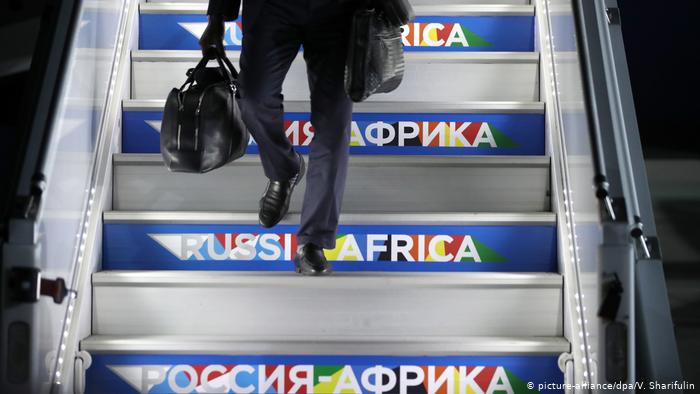
Photo: DW
Is Russia the new China for Africa? Some think so. In the case of Mozambique, the interest is mutual. The government needs support in the fight against terrorism and Moscow wants gas. And with that comes the arms trade.
From October 23 to 24, Moscow hosted the Russia-Africa Summit, a meeting which closely resembles the 2000 Sino-Africa Summit, the cornerstone of Africa’s shift towards Chinese funding. The 2000 event offered an alternative to the West, which imposed numerous conditions of a political nature. Today’s is a replica, but with Russia.
José Milhazes is a historian and expert on relations between Russia and the PALOP (Portuguese-speaking African) countries and explains what has stirred Moscow’s interest
“I think it is a mutual process. First, we have to see that Russia is looking to get into Africa in full force. This is a project of President Vladimir Putin’s which gained strength after 2014, when Russia was sanctioned for invading Crimea. [Russia] needs new markets and partners and it is trying to enter the [African] continent.”
Mozambique is one of the countries that has consolidated relations with Russia in recent years. What is the origin of this sharp Mozambique shift towards Moscow?

“Russia is interested in investing in gas fields [in Mozambique],” Milhazes notes. “The Russian offensive coincides with the possibility of African countries having this other partner and thus playing among the major international partners, which are China, the US and Europe.”
Russia provides breath
Mozambique’s traditional cooperation partners in the West ‘closed the purse strings’ on the country in an almost intransigent manner, after the ‘hidden debts’ involving loans worth €2 billion came to light.
After China, to which Mozambique is already heavily indebted, Maputo finds in Moscow another chance to get out of the bind.
“The fact that financial markets have dried up for Mozambique” makes cooperation with Russia attractive, says journalist Fernando Lima, because, “unlike the West, [Moscow] does not ask those questions about human rights and certain types of behaviour.”
The journalist also underlines Moscow’s interests. “Mozambique has things that interest Russia, namely minerals and other important things.”
For Lima, an “ideological debt” also comes into play. “Mozambique has an unresolved dispute with Russia, which is a huge debt arising from the early years of independence related to military material. And both parties have a different approach to this subject,” he says.

And where does this leave the West?
In spite of everything, Mozambique still has many of its Western-funded development projects, and many transparency and democratic initiatives are funded by the West.
So how can this Maputo-Moscow approach be understood by Europeans and Americans?
“Mozambique must act with some caution, so that this rapprochement does not mean ostracising other partners and giving Russia a preference,” Lima warns.
Reduction of Western flagship in Africa
Human rights, one of the West’s warhorses in Africa, are not a concern for Russia or China. But the dangers of Russia-Africa cooperation go far beyond this Western flagship, Milhazes contends. In particular, the possibility of such cooperation “not being properly used for the development of the country itself”, as he puts it.
“We know, for example, that, one of the banks in the case of hidden debts is one of the largest Russian banks, VTB, which belongs to the Russian government,” he adds.

Milhazes argues that “there has to be internal democratisation in African countries. Otherwise, Russia will not bring anything new to Africa, because one of the major components of this bilateral cooperation will be arms exports. Now, weapons in Africa already exist – more than enough.”
Why Russia in Cabo Delgado?
Armed attacks in northern Mozambique are a major concern for the national government, and the Mozambican press has reported the presence of Russian men and military equipment in Cabo Delgado province in recent months, a fact not yet corroborated by Maputo.
And choosing Russian support in this context has a relatively solid foundation, according to Milhazes, who believes that “the example of Russia’s intervention in Syria may lead African leaders to think that Russia can solve the problems of terrorism in their countries. And I say that mainly in relation to Mozambique.”



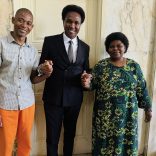
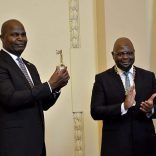
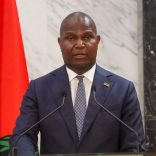
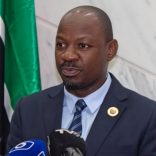





Leave a Reply
Be the First to Comment!
You must be logged in to post a comment.
You must be logged in to post a comment.